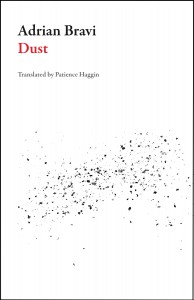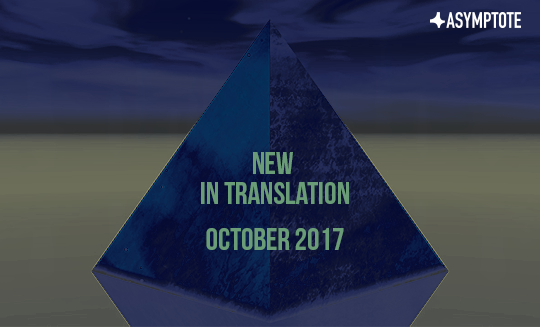Every month, batches of books arrive fresh on the shelves of bookstores around the world. Our team has handpicked three exciting new reads to help you make up your minds on what to sink your teeth into, including novels from Italy, Brazil and Norway.

Dust by Adrian Bravi, translated from the Italian by Patience Haggin, Dalkey Archive Press.
Reviewed by Lara Norgaard, Editor-at-Large, Brazil.
“‘How long will I have to flail about, drowning in the world of the microscopic?’”
This is one of the many questions that the narrator, Anselmo, of Adrian Bravi’s novel Dust anxiously asks himself while coping with his total phobia of dust. The depth of his internal interrogation hinges on the word “microscopic”: Anselmo faces not the literal question of clean living, but instead the concept of infinite accumulation and infinite loss—of seconds and minutes, of words and ideas, of skin and hair and other shavings of the physical self.
To read Patience Haggin’s forthcoming English translation of Dust (Dalkey Archive Press, October 2017) is to slowly sink into an ocean of everyday minutiae. The book centers on Anselmo, a librarian living with his wife Elena in the fictional city of Catinari, Italy, and his daily routine of cataloguing books, obsessively dusting surfaces, and frequently writing letters that invariably never reach their destination.
What gives this novel its power is not the literal subject matter of the book, which often threatens to overtake the prose in its tedium, but instead the artful language that invites us to meditate conceptually on the simple life represented. Anselmo, at one point, compares his monotonous work cataloguing books to that of a “simple mortician sorting bodies for burial according to their profession”; at another moment, his wife Elena says that reading newly published books is akin to, “‘studying smoke your whole life when you’ve never seen fire.’” These metaphors broaden a seemingly narrow scope, bringing us closer to fully imagining humanity’s constant and immense decay.

